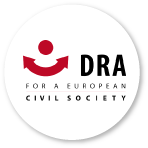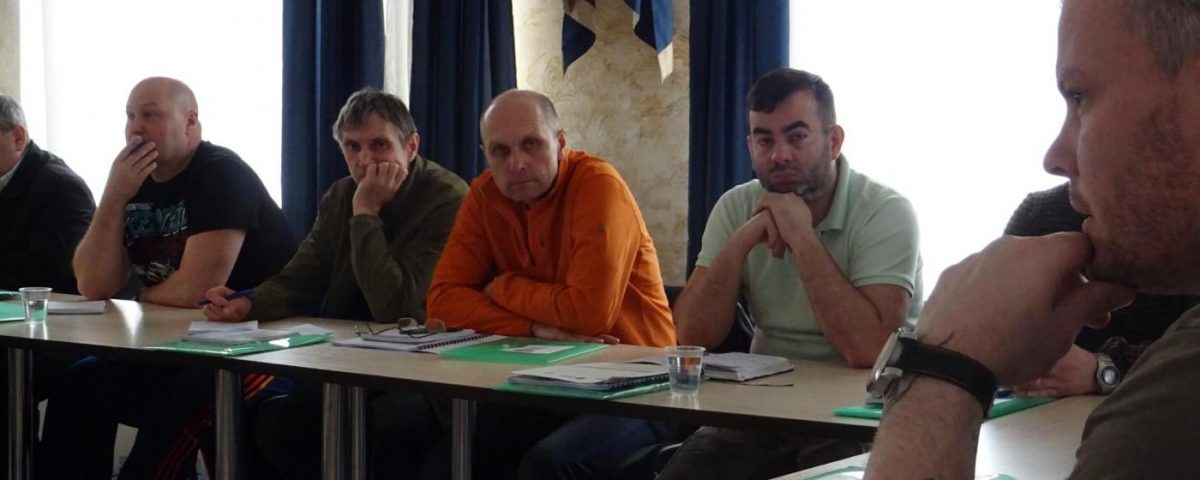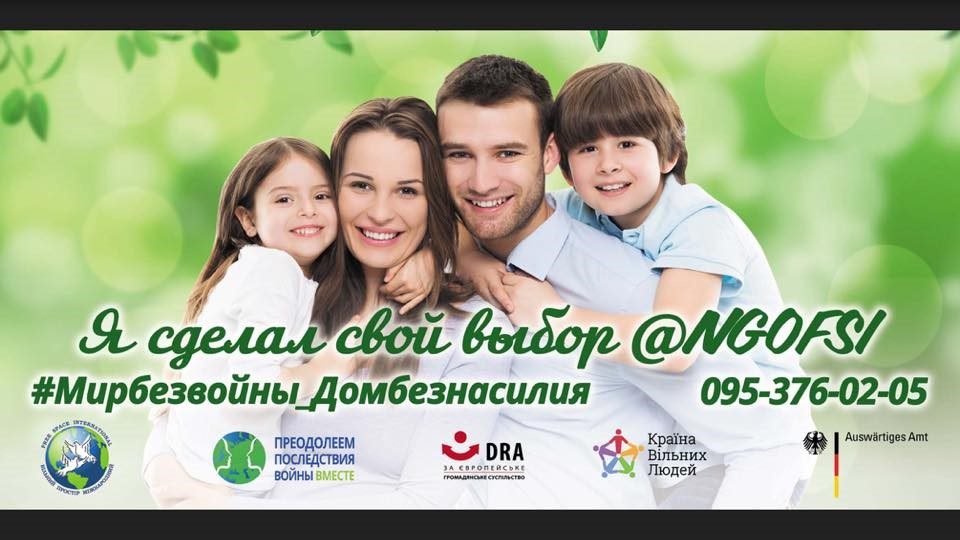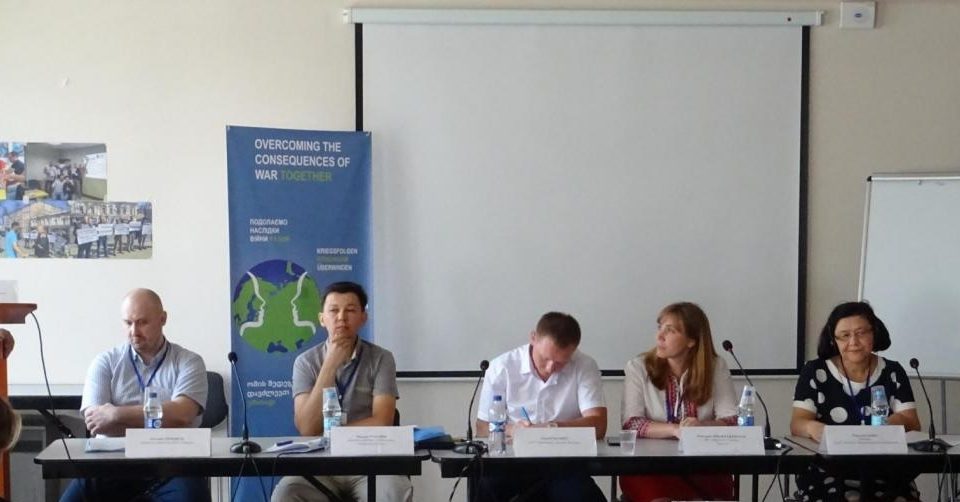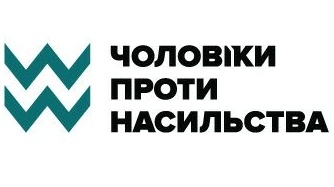Successful completion of the educational program for men in the field of prevention and public relations aimed against domestic violence, caused by military actions

The information campaign “Men against violence” was held in Dnipro
21. June 2018
International Round Table on the topic: “Dealing with men on domestic violence topic: efficient prevention practices, dealing with offenders”, in Kyiv on July 27-28
30. July 2018In order to respond to and counter the growing domestic violence in the context of military activities in Eastern Ukraine, within our educational program “From rehabilitation to education and practice of counteracting the critical growth of domestic violence as the consequence of the armed conflict in the East of Ukraine”, we prepared 4 active Ukrainian men from the following regions: Severodonetsk, Kharkiv, Kyiv, Odessa, Cherkasy and Dnipro, including former participants of military operations and internal in-migrating persons, who became multiplicators in the field of prevention and work with the public with men on the topic of domestic violence as a consequence of war.
The training program was developed within the framework of our project, based on the professional knowledge and experience of experts from the North Caucasus and was implemented by us together with these experts as well as Ukrainian trainers.
Based on the work experience of our previous project, the Education Program is designed specifically for the training and dealing with men affected by the military activities: as it became known in our project work on the reduction of domestic violence as a consequence of military activities in 205 year, in Ukraine (as in many other post-conflict regions) work on this topic is carried out mainly with women only, as well as acutely needed help is provided for victims of domestic violence. But preventive work with men until now, on the contrary, is almost not carried out. But, given our working experience and experience of our colleagues from the North Caucasus, work on the issue of domestic violence as a consequence of military activities can be effective and successful only if this topic will be also handled by men. Therefore, we purposefully invited to participate in our educational program only men who suffered from military activities.
One of the central components of our educational program is the implementation of sub-grant projects by the participants of this program, which are both financially and professionally supported by us. Thus, within the framework of our program, the participants held 7 workshops on the topic of domestic violence with men affected by the military activities and implemented 6 information campaigns on the prevention of domestic violence as the consequence of war in six different regions of Ukraine.
Through the implementation of their own sub-grant projects within the framework of the training, the participants were able to immediately implement the acquired competencies, test and expand their abilities with the help of trainers, as well as directly, neutralizing the conflict, affect the problem of domestic violence in Ukraine. Thus, they contributed to a direct change in the behavior of male participants of the workshops in the first phase of sub-grant projects and, with the help of the information campaigns (stage 2) held later, involved like-minded people in the field of prevention and work with the public against domestic violence as the consequence of military activities.
The next important point of our training program is the rehabilitation of our participants, which is a compulsory component of each training module in which participants fight with their personal emotional stress, feelings and fears and learn how to control them. This personal experience as well helps them in their work with other men.
Our series of workshops consisted of four consecutive modules lasting 7 days and was implemented as part of our component of the project “Strategy for counteracting the domestic violence as a consequences of war” from April 207 to June 208.
In the first module, our participants learned from the selected exercises and work strategies of the “Engaging Men Through Accountable Practice” (EMAP) program, how to work with other men on the topic of domestic violence, as well as to conduct an appropriate preliminary analysis of the target group and their problems.

The second module was aimed at acquiring important trainer skills, as well as at the concept and organizational preparation and further analysis of the workshop. Then the learned techniques of discussion and teaching methods were implemented by the participants in the simulated situations of the workshop, worked out and improved with the help of the trainer.
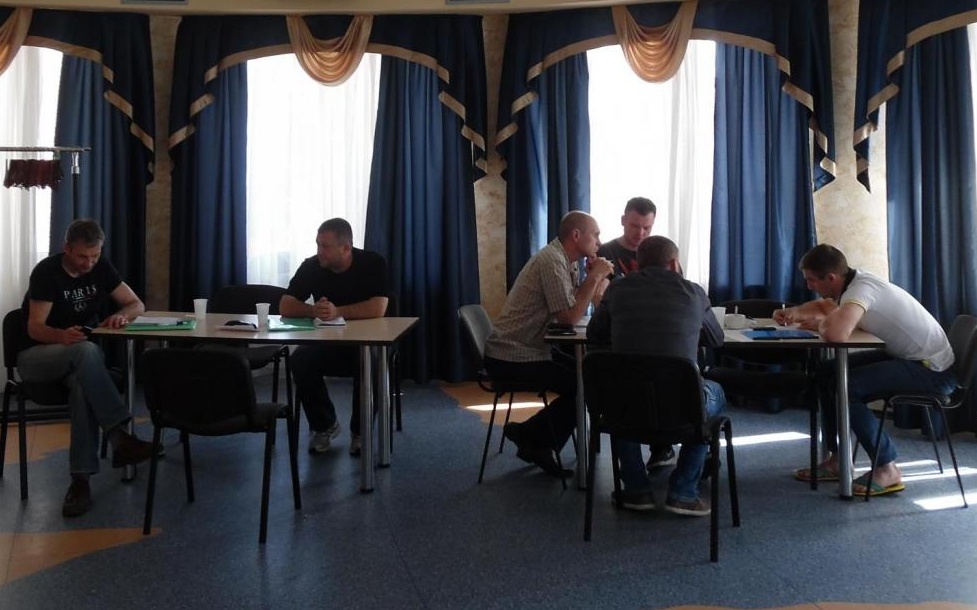
After conducting the workshops with other men affected by the military conflict, where together they reviewed the sources of domestic violence as a consequence of military activities and possible strategies for responding to them, as well as further evaluation of our participants’ work experience, in the wake of the third module of our training program they learned how to develop and conduct male-oriented information campaigns on the prevention of domestic violence related to the conflict.
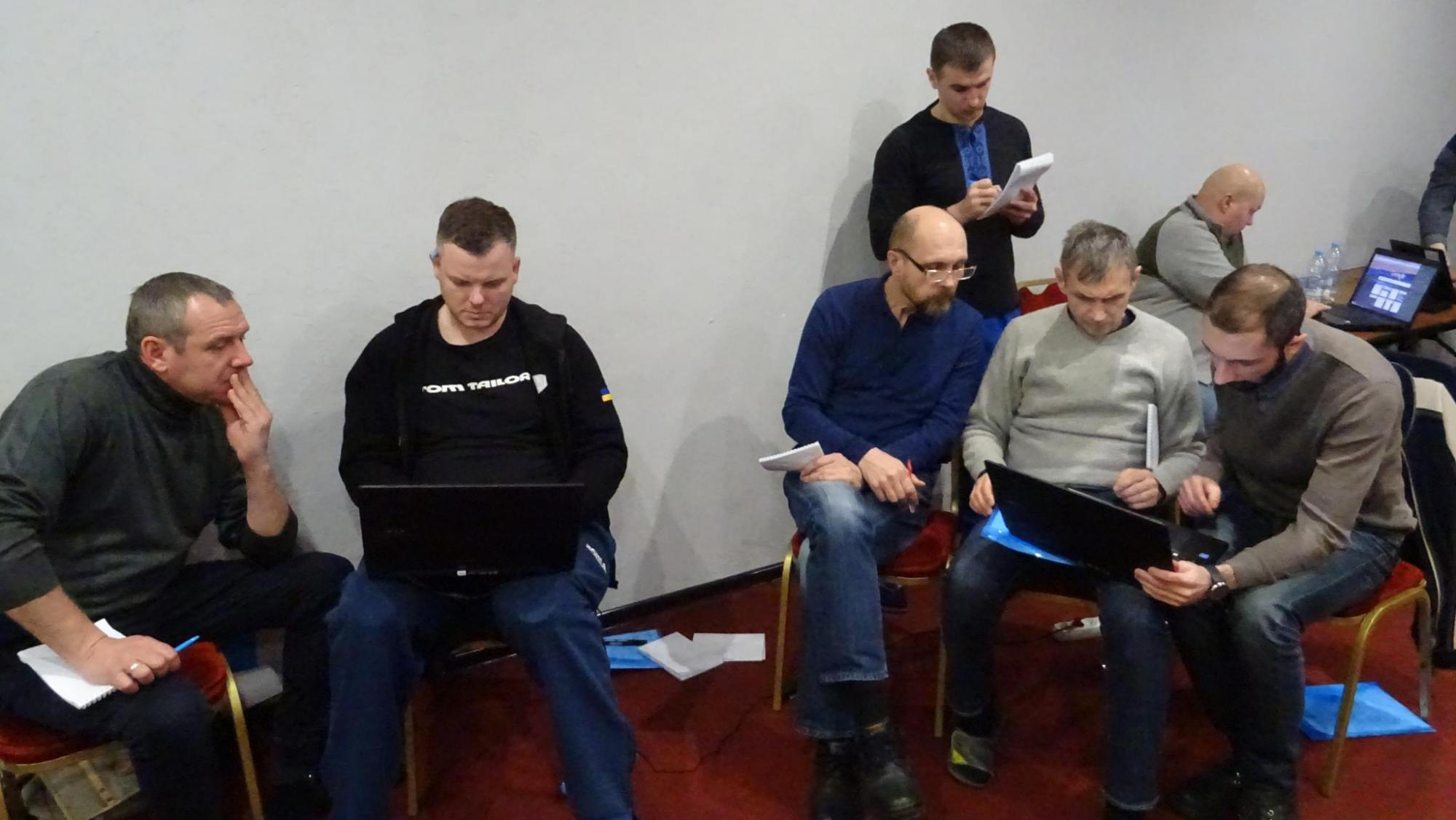
These information campaigns on the prevention of domestic violence, which also had to encourage other men to take up the issue of domestic violence in the context of military activities, were implemented in six regions of Ukraine from April to May 208.
![]()
Flashmob “Men of Odessa – Against Domestic Violence”, which took place in the framework of the information campaign “The man – winner in his family?” on April 3, 208 on the Tiraspol Square in Odessa.

Seminar on “Men against violence. Allies and Defenders “, which took place in Dnipro on April 9, 208 as part of the information campaign” Men Against Violence “.
In the fourth and last module of our educational program, at the conclusion a joint evaluation of experience and results of our participants’ work was carried out and the plans and working strategies of the participants for the future were discussed.
All participants in our program carry on preventive measures and work with the public on counteracting domestic violence as a result of military activities started on their own initiative within our project.
We wish them success in this work!
Also, after the completion of the educational program within our project component “Strategies to counter domestic violence caused by the consequences of war”, an International Round Table on the topic “Dealing with men on domestic violence topic: efficient prevention practices, dealing with offenders” took place in Kyiv on July 27-28, 208″.
In the framework of the Round Table on the public evening event on July 27, 208, the results of our educational program in the form of a panel discussion with 6 participants of the program were presented, as well as the further exhibition created in the framework of the campaigns of our participants, information materials on the prevention of domestic violence as a consequence of military activities.


In the process, our participants were able to form important and useful – for their future work – contacts with international and Ukrainian experts present, who were very impressed by the results of the work of the trained multiplicators, and immediately after the presentation of the project results, possible cooperation options were discussed and planned.

To get contact details of our multiplicators for cooperation, please contact Maria Slesazeck, Germany, Head of the Project “Overcoming the Consequences of War Together” (DRA e.V.) as well as to Nadia Khomenko, Ukraine, Coordinator of the Project in Ukraine (NGO “Country of Free People”).
